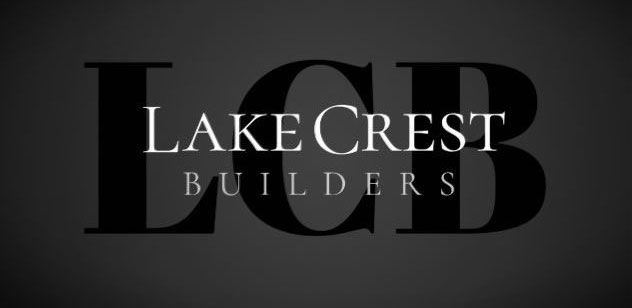
If you locked in a rock-bottom mortgage rate during the boom years of 2020 or 2021, you might feel like you won the financial lottery. But fast forward to today, and what once felt like a golden ticket can now feel like a cage. Rising interest rates have cooled the housing market to a slow simmer, leaving many homeowners caught between gratitude for their low monthly payments and frustration that moving—or borrowing—now comes with a much steeper price tag. For millions of people, the new reality isn’t just about dollars and cents; it’s about feeling stuck, even when life demands change.
The Golden Handcuff of a Low Mortgage Rate
For homeowners sitting on 2% or 3% interest rates, the idea of moving—whether for a job, family, or just a change of scenery—has become a tough sell. Why trade in a monthly payment that feels manageable for something potentially hundreds (or thousands) of dollars more expensive? That low fixed rate, which once felt like a stroke of luck, now acts like golden handcuffs, keeping you in place whether you want to be or not. It’s a financial comfort zone that’s increasingly difficult to justify leaving, especially when new listings come with higher price tags and borrowing costs.
The Chilling Effect on Home Sales
As interest rates have climbed, home sales have slowed dramatically. Buyers face sticker shock not just from inflated home prices, but from the cost of financing. Sellers, many of whom have locked in historically low mortgage rates, aren’t eager to jump into this frigid new market either. The result is a gridlock—fewer listings, slower sales, and a lot of homeowners watching from the sidelines, unsure of what to do next.
Home Equity Isn’t Just Paper—It’s a Lifeline
If you’ve owned your home for more than a few years, chances are you’re sitting on a decent chunk of equity. That equity doesn’t have to stay locked in your walls—it can be a way to access funds for upgrades, emergency expenses, or even a second property. Home equity lines of credit (HELOCs) or cash-out refinances come with higher rates than they used to, but for some, they still beat the cost of moving. Leveraging your equity wisely can help you solve problems without giving up your current mortgage.
Organizing Your Documents
Even if you’re not planning to sell anytime soon, keeping all your housing-related documents in one place is a smart move that makes future transitions smoother. From mortgage statements to repair receipts and warranty paperwork, having these materials easily accessible gives you a clear picture of your home’s history and value. Digitizing important documents and saving them as PDFs can cut down on clutter and ensure you’re never scrambling when it’s time to gather files. Consider this option if you need to convert files into PDFs.
Turning Your Home into an Income Stream
With affordability strained on all sides, converting part of your home into a rental space is gaining popularity. Whether it’s a basement unit, an in-law suite, or just a spare bedroom, short- or long-term rentals can create monthly income that offsets rising costs. Platforms like Airbnb or even local university housing boards make it easier than ever to find reliable renters. It’s not for everyone, but for those comfortable sharing their space, it’s a smart way to make the current market work for you.
A Home Warranty as a Financial Safety Net
When unexpected breakdowns hit your home, a warranty can soften the blow and keep you from dipping into savings or racking up credit card debt. Investing in a home warranty gives you peace of mind that major systems and appliances are covered when life throws a curveball—especially if you’re trying to avoid costly surprises. This type of protection usually comes as an annual renewable contract that can cover breakdowns to your heating, cooling, electrical, and plumbing systems, along with handling appliance repairs. Learn more with this home warranty definition.
Creative Financing for the Brave and Flexible
If you absolutely need to move, traditional financing might not be your only path. Seller financing, lease-to-own agreements, and assumable mortgages are niche options, but they’re worth exploring in this kind of market. Some buyers are even partnering with family or friends to co-invest in property, sharing costs and responsibilities. Creative deals require more legwork and legal scrutiny, but they can open doors that feel otherwise locked.
Rethinking What “Moving Up” Means
The classic idea of “moving up”—bigger home, better neighborhood, more space—might need a 2025 rewrite. More homeowners are asking themselves whether “moving up” could mean relocating to a more affordable region, downsizing to gain flexibility, or even embracing minimalism to reduce financial pressure. It’s not just about square footage anymore; it’s about lifestyle and freedom. Redefining what progress looks like can help you move forward without necessarily moving out.
The Psychological Toll of Feeling Stuck
Beyond the spreadsheets and interest rates lies something less quantifiable: the emotional impact. Feeling like you can’t move—whether because of money, market forces, or indecision—can lead to stress and dissatisfaction. It’s easy to feel isolated in this experience, but the reality is, millions are in the same boat. Acknowledging the mental load is the first step toward finding creative, empowering ways to regain control.
The current housing landscape is complicated, and for homeowners locked into low rates, it’s tempting to stay put forever. But being anchored by a good deal shouldn’t mean giving up on your goals or ignoring life’s inevitable changes. Whether it’s tapping into home equity, reimagining your space, or pursuing alternative financing routes, there are ways to adapt without losing the advantages you’ve secured. The key is to shift your mindset from stuck to strategic—because in a market like this, thinking differently might be your best move yet.
Discover the art of exceptional home building with LakeCrest Builders and transform your dream home into a stunning reality!

